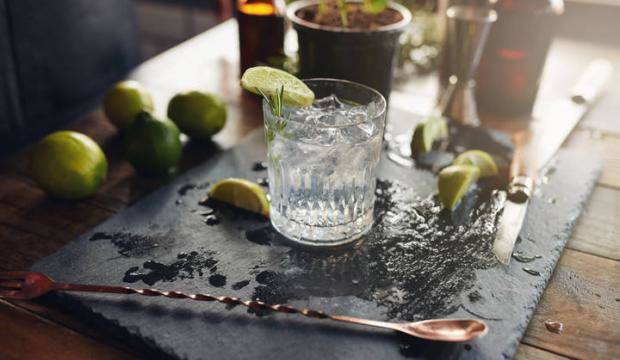In Alaska’s bar wars, the establishment has struck back.
On Wednesday evening, bar and liquor store owners launched a wave of public testimony urging the Alaska Legislature to put tougher restrictions on small distilleries and breweries that have pushed the boundaries of Alaska law as they attempt to meet changing consumer demand.
“Manufacturers’ tasting rooms should not be the biggest bars in town,” said Eric Forst, general manager of the Red Dog Saloon.
“We are not a bar. We don’t want to be a bar. We have nothing to do with bars,” said Rob Borland of Ursa Major Distilling in Fairbanks. “These bar owners say we’re devaluing their license somehow. They haven’t changed anything in the past 50 years. I think they’re doing a pretty good job of devaluing it themselves.”
At issue is Senate Bill 76, a sweeping reform of Title 4, the section of Alaska law that deals with alcohol production and sale. That section hasn’t been reformed since the 1980s, but the way Alaskans — and the rest of the world — consumes its alcohol has changed significantly.
As the Empire reported last year, Alaska is drinking less beer, more liquor and more wine. It’s drinking less mainstream beer and more craft beer. It’s also drinking less alcohol overall.
Much of SB 76 is uncontroversial and has broad support from those who sell alcohol and those who deal with the problems it causes. The ideas in the measure have been under consideration for six years by a group of stakeholders from across the state.
On Wednesday, bar owners said the problem is what is not in the bill. The measure doesn’t do much to curtail the growth of distilleries and breweries, which are classified as manufacturers but are allowed small retail sales in tasting rooms.
Now, retailers who have paid $250,000 or more for a bar’s liquor license are upset that they are losing business to places that might have paid 1 percent of that amount for a distillery or brewery license but still serve cocktails or several glasses of beer.
“There’s only so much spendable money out there in Alaska, and there’s only so many customers,” said Pete Thibodeau, who holds several Juneau liquor licenses. “The pie doesn’t get bigger, OK?”
“It just needs to be an equal playing field. If they want to serve cocktails, buy a (beverage dispensary license),” said the owner of Riley’s Irish Pub in Anchorage about the state’s licensed distilleries.
The bar owners, who turned out in droves in person and by phone, said they have large investments and long standing in the community.
For those who enjoy Juneau’s establishments, the testimony was a veritable lineup of the big names: Representatives from the Lucky Lady, Squirez, Red Dog, Narrows, Triangle Club, and multiple package stores all appeared.
They suggested reductions in distilleries’ and breweries’ sample sizes, regulations on the size of tasting rooms at manufacturers’ facilities, and changes to operating hours, among other alterations.
None of those changes are in SB 76, though the bill could be amended as it advances through the legislative process in the House.
The handful of distillery and brewery representatives who testified said they already operate under restrictions greater than those applied to bars.
Distilleries have narrower operating hours, aren’t allowed to host live music (except during closed-to-the-public events), and can only serve their own product. Brandon Howard, founder of Juneau’s Amalga Distillery, pointed out the biggest difference. When someone comes into his bar and asks for a beer, he said, he can only offer the gin he makes.
Also receiving attention from bar owners and other license holders on Wednesday was a “three-strikes” policy that requires the revocation of a liquor license if an establishment is convicted three times in a five year period for alcohol-related violations.
Testifiers said that clause was punitive and denied flexibility to the Alcoholic Beverage Control Board.
Additional public testimony was scheduled for Thursday evening.
• Contact reporter James Brooks at jbrooks@juneauempire.com or 523-2258.

